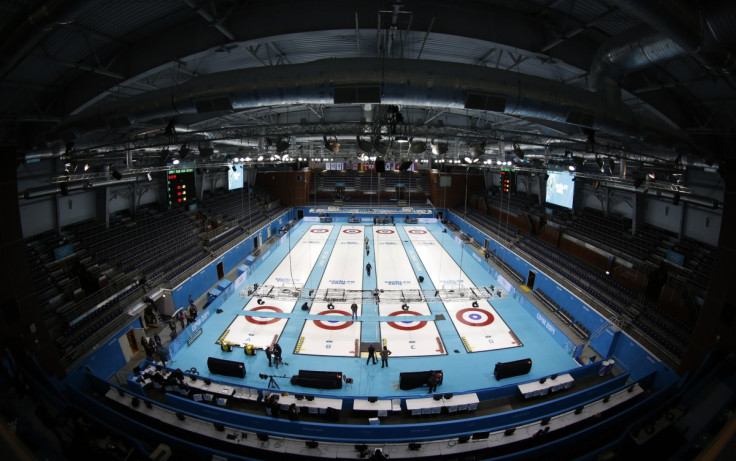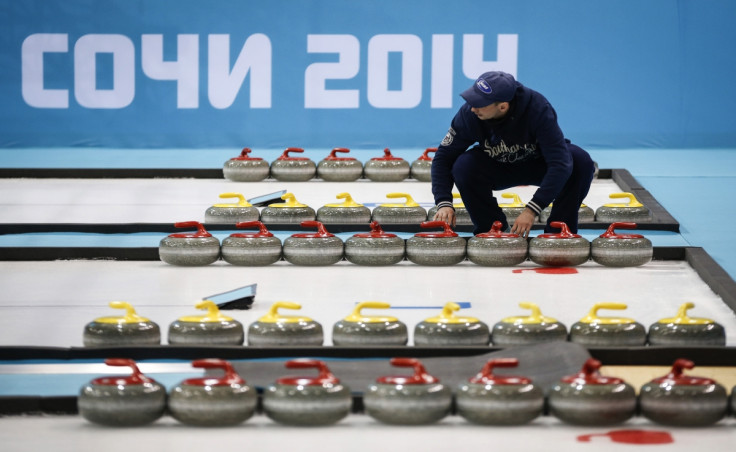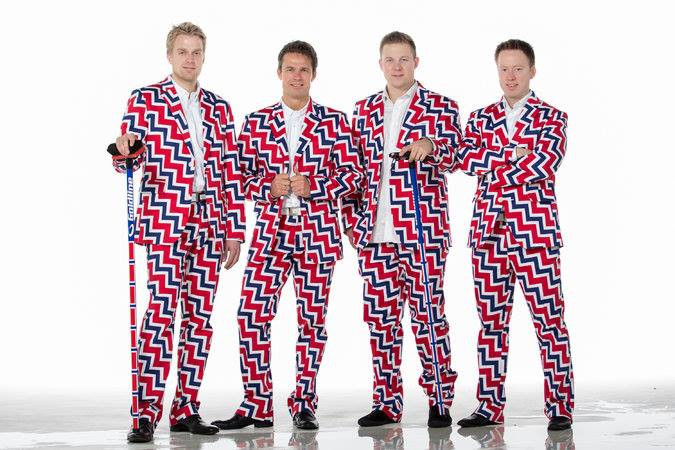Sochi Winter Olympics: Definitive Guide to Curling Competition

At Vancouver Winter Olympics in 2010, one sport stood out as a crowd favourite: Curling.
Spectators went wild as stones were knocked out of the circular target as curlers worked their brooms vigorously along the ice to become victorious.
In Vancouver, Canada took Gold in the men's category, while Sweden swiped it for the women. Norway, China and Switzerland also took home medals.
But who will win at the Sochi Winter Olympics 2014? IBTimes UK looks at the curling competition at this year's Games.
Where did it come from?
The exact origins of curling are unknown but its origins dates back to the 16<sup>th century, when a Scottish notary recorded a challenge in Paisley. John Sclater, a monk, threw a stone along the ice three times and said he was ready for a contest with Abbot representative Gavin Hamilton.
The game was originally played on frozen lochs and ponds and curling clubs were formed. It was then exported to countries including Canada, US, Sweden, Switzerland, Norway and New Zealand. The official rules were drawn up in Scotland by the Grand Caledonian Curling Club, formed in 1838.
It was first recognised as an Olympic sport at the 1924 Games in Chamonix, during which Great Britain defeated Sweden and France.
What are the rules?

The playing sheet, known as a curling sheet, is prepared to be as flat and level as possible. It measures between 146ft and 150ft in length and 14.5ft and 16.5ft in width. The target known as the house is marked at the end of each sheet, with blue, white and red rings. These are not involved in the scoring but are an indicator as to how close the stone gets.
Each team has four members and eight stones. The first two stones, or rocks, are thrown by the lead team member, followed by the second then the vice. When not throwing the stone, the other team members sweep the ice to direct the stone to the rings.
Players must not make contact with the stone, but guide it with the sweeping brooms. Fast sweeping makes the stone turn, while a slower action will reduce the speed because of the friction with the ice.
Opponents will try to knock the other team's stones from the centre. The winner is the team whose stone is closest to the centre of the target and teams earn points for each stone closest. In total, 16 stones are thrown. Only one team can score at the end of each game. If a game is tied, an extra period is added.
Sochi 2014

Curling is relatively new to Russia. It arrived at the end of the 19th century as a leisure activity for foreign diplomats and businessmen. It was re-established in 1991 at the Lesgaft University of Physical Education, Sports and Health in Saint-Petersburg.
Curling at the Sochi Olympics will take place at the Ice Cube Curling Centre, which was built in 2012 and has a capacity of 3,000. The curling event kicks off on 10 February with the Men's Round Robin. The games being played are Russia vs Great Britain, Switzerland vs Sweden, Denmark vs China and Germany vs Canada.
The women's event will start the same day with the matches Canada vs China, Switzerland Vs USA, Sweden vs Great Britain and Russia vs Denmark. The first round of the competition will be played that day, with the second round scheduled for 11 February.
Any tie-breaker matches that need to be played will be done on 18 February, followed by the semi-finals. The women's finals will take place on 20 February, while the men's will take place the day after.
Who qualified?
For the Men's event, the following countries have qualified:
Canada
China
Denmark
Germany
Great Britain
Norway
Russian Federation
Sweden
Switzerland
United States
For the Women's event, the following countries have qualified:
Canada
China
Denmark
Great Britain
Japan
Korea
Russian Federation
Sweden
Switzerland
United States
Who is going to win?

At the moment, Canada are clear favourites to win gold in both the men's and women's competitions. Betting website William Hill has their odds at 3/5 for the men's and 5/4 for the women's. The outsiders for the men are currently Germany (40/1) and Russia (66/1). For the women's, Russia has odds of 33/1, while South Korea has 66/1. Great Britain has a good shot, however, with 5/1 for men's and 5/2 for the women's.
Over the last few years, no one team has dominated. Over the last four Olympics, the men's contest has seen Canada win twice, Norway once and Switzerland once. For the women, Sweden has won twice, Great Britain once and Canada once.
While the team that wins gold will get the glory, Norway's team has already taken home another title from the Games – Best Dressed. The team unveiled their colourful outfits last month, wowing spectators across the globe with their flashy zigzag ensemble.
© Copyright IBTimes 2025. All rights reserved.





















